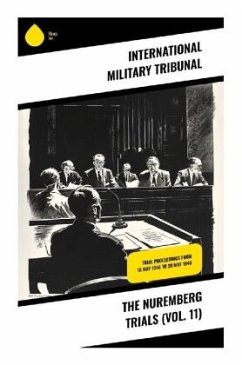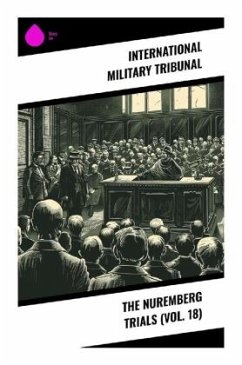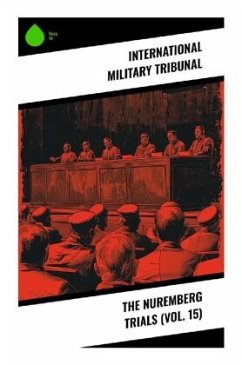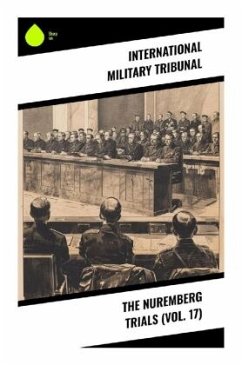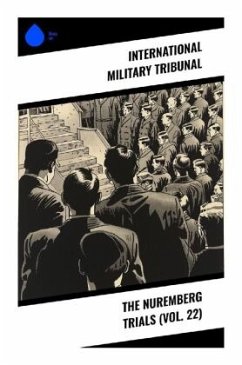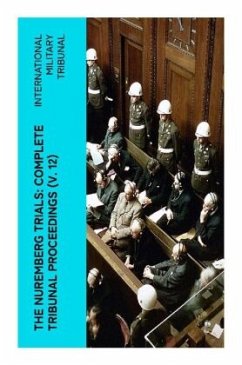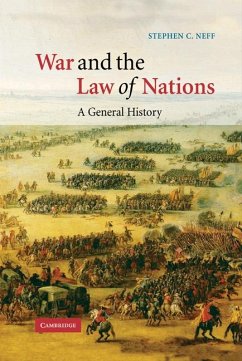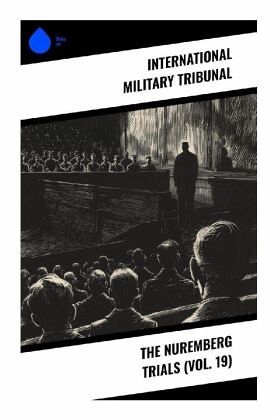
The Nuremberg Trials (Vol. 19)
Versandkostenfrei!
Versandfertig in 6-10 Tagen
21,20 €
inkl. MwSt.

PAYBACK Punkte
0 °P sammeln!
The Nuremberg Trials (Vol. 19) offers a meticulous and profound documentation of one of history's most pivotal legal proceedings. This volume delves into the unprecedented trial of major war criminals following World War II, elucidating the complexities of international law and human rights. Through a formal and analytical literary style, the text intertwines legal arguments, personal testimonies, and ethical considerations, presenting a compelling narrative that explores the quest for justice in the wake of atrocity. The Tribunal's commitment to accountability and the establishment of a legal...
The Nuremberg Trials (Vol. 19) offers a meticulous and profound documentation of one of history's most pivotal legal proceedings. This volume delves into the unprecedented trial of major war criminals following World War II, elucidating the complexities of international law and human rights. Through a formal and analytical literary style, the text intertwines legal arguments, personal testimonies, and ethical considerations, presenting a compelling narrative that explores the quest for justice in the wake of atrocity. The Tribunal's commitment to accountability and the establishment of a legal framework for war crimes are chronicled with precision, reflecting the broader literary context of post-war reflections on morality and justice. The International Military Tribunal, composed of judges from the United States, the United Kingdom, the Soviet Union, and France, was shaped by the urgency of addressing the atrocities committed during the war. The collaborative nature of this tribunal reflects diverse legal philosophies and cultural backgrounds, as its members faced the monumental challenge of reconciling national law with universal ethics. The trials were a direct response to the horrors of the Holocaust and other wartime tragedies, aiming to assert that individuals could be held accountable before an international legal body. This volume is essential for scholars, students, and anyone interested in the evolution of international law and human rights. It not only provides an indispensable historical record but also invites readers to reflect on ongoing global issues of justice and accountability. Engaging with this text will deepen understanding of the legal precedents established at Nuremberg and their lasting impact on contemporary human rights discourse.



